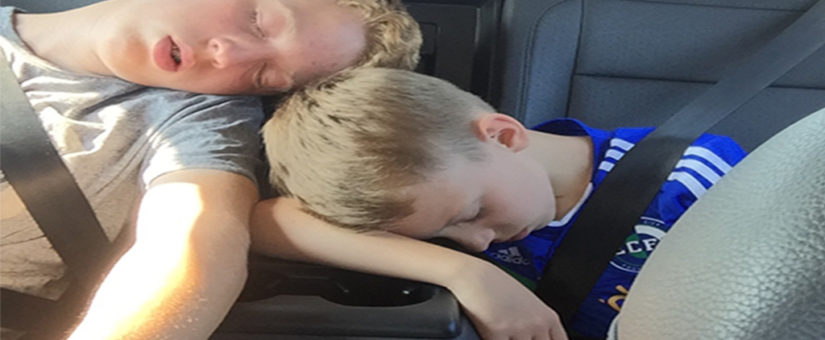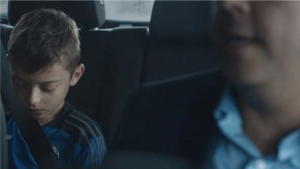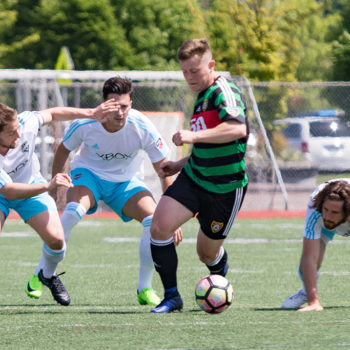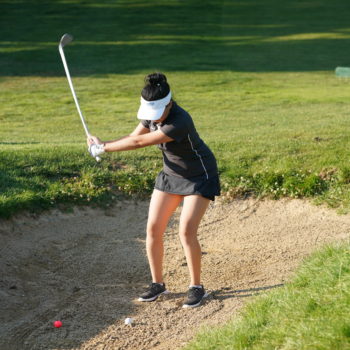
Effectively Handle the Car Ride
As a kid, the conversations on the way home from a game I remember liking the best were brief and positive. For practice, most of them simply involved me being asked how practice went, and if I enjoyed my time playing soccer/basketball/running track. Good conversations after a competition weren’t much different. Those usually involved me being asked if I had fun, maybe a special moment being pointed out about something I did well. Sometimes the best question was what did I want to eat. By the time we got in the car to go home, everyone in the family was exhausted from having endured hours of sitting on hard bleachers, standing outside, or having been in a loud and stuffy gym for too long. The last thing I wanted was to do was listen to a play-by-play of what my parents had just watched and how they thought things should/could have gone way better. I am VERY confident every young athlete out there feels the same way.
For practice, most of them simply involved me being asked how practice went, and if I enjoyed my time playing soccer/basketball/running track. Good conversations after a competition weren’t much different. Those usually involved me being asked if I had fun, maybe a special moment being pointed out about something I did well. Sometimes the best question was what did I want to eat. By the time we got in the car to go home, everyone in the family was exhausted from having endured hours of sitting on hard bleachers, standing outside, or having been in a loud and stuffy gym for too long. The last thing I wanted was to do was listen to a play-by-play of what my parents had just watched and how they thought things should/could have gone way better. I am VERY confident every young athlete out there feels the same way.

The conversations I dreaded, and sucked the life out of my sporting experience, were the ones where parents criticized the refs, coaches, my play, or worst of all, my teammates. The way a parent looks at a sporting event differs greatly from the way a young athlete evaluates things. Parents see nuances, sometimes tactical choices, certain moments in competitions where one decision affected the outcome. Kids don’t see things with quite the same discernment. Certainly, as a spectator, one sees practices and competitions differently than the first-person perspective of the young athlete immersed in the experience. Young athletes generally don’t enjoy having a parent act as an assistant coach and be hyper critical of their performance. In fact, this act of a parent being critical is a huge leader in athlete burnout or worse, athletes stepping away from a sport.
The time after a competition is critical for a young athlete.
- They are physically and emotionally exhausted.
- Comments, or analysis about their play, comments about their teammates, comments about coaches’ decisions will only serve to focus on negatives.
- At the most, the parent’s role is to help guide the young athlete back to controllable variables and remind them sport is supposed to be fun!
At a young age, athletes are working on skill acquisition, concerned about their social standing within the group, and generally working to learn how effort and focus equates to sport improvement. Picking apart their games and highlighting negatives does not effectively help them improve in these areas. Improvement for a young athlete occurs when they keep their attention on controllable variables within their sport. No one athlete can win a game by themselves. No one athlete is responsible for how a coach teaches or leads. No one athlete can ‘make the team play like they want it.’ Too often parents miss these important considerations. An athlete has fun and gets better at their sport when they are able to understand and focus on controllable variables, end of story.
So as a parent, if you must say something to those young athletes in the car pool back seat while going to or from a sporting event, here are some ways to structure those conversations. Keep in mind that less is more in almost all cases!
ON THE WAY HOME
ENCOURAGE YOUR ATHLETES TO REVIEW ONLY CONTROLLABLE VARIABLES
- What went well for you today?
- What didn’t go as well as you would have liked?
- Did you give your best effort?
- Did you use good sportsmanship?
- What did you learn?
- Did you have fun?
GOING TO PRACTICE
HELP YOUR YOUNG ATHLETES FOCUS ON CONTROLLABLES
- Do you have all your stuff (check before you leave house)?
- How would you like practice to go?
- What will you do to help practice go well?
- Is there something particular you will work on today?
- How will you be a good teammate?

** Allow time/space for music or funny videos as these things can help create a positive vibe and decrease any potential anxiety about outcome.
Remember, participating in sport is supposed to be fun! Yes, we want our young athletes to work hard, experience growth, learn some quality life lessons, and be able to work well with others. All of those things can be accomplished in a non-threatening environment. Most times, sport is the best teacher, so remember as a parent, your main job is to create a car ride where controllable variables, taking chances, and the enjoyment of sport is the main focus. Learning doesn’t have to feel like life or death.
- Getting Your Intensity Level Right - March 17, 2025
- Building a Functional Resilience Plan is Vital to a Referee’s Success - February 18, 2025
- sport in a pandemic: Crisis or opportunity?Chapter 4 - December 4, 2020


